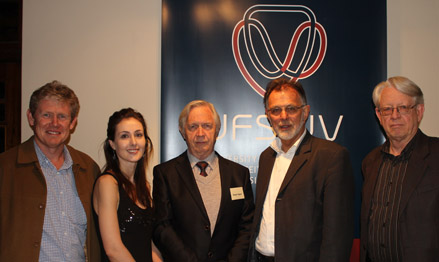Latest News Archive
Please select Category, Year, and then Month to display items
18 May 2023
|
Story KEKELETSO TAKANG
|
Photo PEXELS

The initiative is not only aimed at getting potential (nascent) entrepreneurs (students, lecturers, stream of external entrepreneurs) actively involved in entrepreneurship, but also to keep them engaged and take them through a value chain to enable them to establish and run a sustainable business. The Business Management Start-Up Initiative will equip students with practical experience, along with the theoretical knowledge that they will accumulate, thus delivering resilient, capable, proudly Kovsie students to industry.
Students will fundamentally understand how business works, improving their employability when they enter a business as employees, and providing them with the skills to become self-employed.
Students can look forward to several interactive sessions with knowledgeable presenters, who will guide them through a well-structured process to continuously evaluate their business ideas against the knowledge gained. Moreover, the active involvement of mentors implies that students will have access to expert sounding boards for advice and motivation. Lastly, due to the partnerships with external stakeholders, students will be exposed to ‘real-life’ industry situations, exposing them to a wealth of industry-specific knowledge.
And just in case that is not enough to get you excited, let the possibility of funding for your new venture be the last drop of motivation you need to fill your tank for action!
Come join the Business Management team every Wednesday between 13:00 and 14:00 in the Flippie Groenewoud Gebou (FGG) 378 to be part of this exciting opportunity!
For more information on the initiative and the topics, click here.
Supplementum analyses the San origin of South African place names
2013-09-25
|
 |
|
At the launch were, from the left: Prof Lucius Botes (Dean: Faculty of the Humanities), Christine van Deventer (SUN MeDIA), Prof Peter Raper (author), Prof Theodorus du Plessis (Head of Department: Linguistics and Language Practice), and Prof Dirk van den Berg (outgoing editor).
Photo: Jerry Mokoroane
25 September 2013 |
The Acta Academica Supplementum 2012 (2), under the outgoing editorship of Prof Dirk van den Berg, was launched on 16 September 2013. The author, Prof Peter Raper, is one of the leading place-name experts in South Africa. The Supplementum analyses the San origin of South African place names whereby different layers of language contact are exposed. For example, Dipodi (previously Jakkalsdraai), is an adaptation of the original San name. The first ‘di’ is the added Sotho preposition. ‘Po’ is equal to the San word ‘po’ (jackal) and the last ‘di’ equal to ‘/gi’ (to bend). Prof Raper’s research indicates that many place names carry evidence of various language shifts. By analysing these language layers, different phases of language contact are exposed. This research is instrumental in the preservation of a unique aspect of the South African cultural heritage.
Prof Raper is since 2011 Honorary Professor: Linguistics, in the Department of Language Management and Language Practice at the University of the Free State. He is one of South Africa’s leading toponymists. The fourth edition of the New Dictionary of Southern African Place Names, with Dr Lucie Möller and Prof Theodorus du Plessis as co-editors, is currently in the press. He is a member of the Commission for Toponymy of the International Geographical Union, as well as the Working Group for Toponymy of the International Cartographic Association, of which there are only ten members worldwide, and a member of the Editorial Advisory Board for the journal Names.